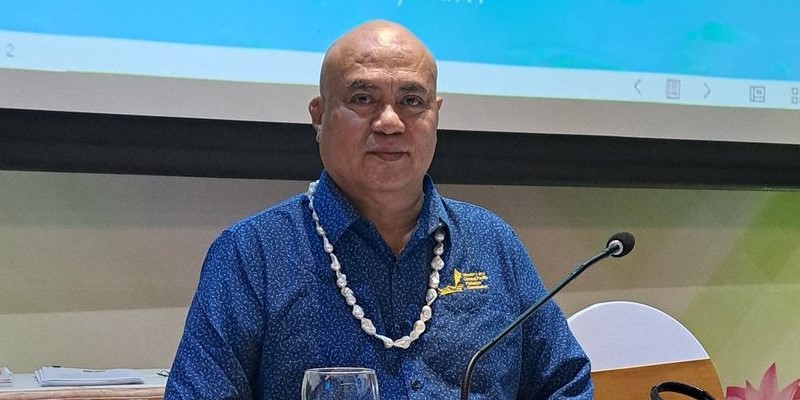Newly-appointed Prime Minister Feleti Teo says the “poorly handled” and hotly-debated Falepili treaty will be renegotiated with a focus on preserving Tuvalu’s sovereignty.
Teo and Australian PM Anthony Albanese are set to meet later this week where Teo hopes it will lead to a “workable arrangement”.
“If the Treaty needs to be revised then we’ll certainly pursue that,” he said on 531pi’s Pacific Mornings.
“But the objective is to come to some workable arrangement where the sovereignty of Tuvalu is assured.”
He also said scrapping the treaty is likely out of the question.
Teo, who now replaces previous PM Kausea Natano, said the previous government mishandled the Falepili Treaty.
He said the lack of consultation led to many Tuvaluans feeling left in the dark about it, and right up to this year’s elections some still felt left out.
“There was no consultation of the key features of the Treaty,” he said.
“The first time the country knew about it was when it was announced last year during the Pacific Island Forum Leaders.”
Teo said he was in a “fortunate position” being one of three other Tuvaluans contracted to undertake the foundational framework for the Treaty.
“I knew the options presented to the government until official negotiations were undertaken by the two governments.”
Teo has also announced Tuvalu will continue diplomatic ties with Taiwan, quelling expectations they would follow Nauru in brokering ties with China.
As for why, Teo says “why shouldn’t we?”
“We’ve been with Taiwan for 46 years. We are the only Pacific Island country since our independence in 1978 that had only one relationship.”
He said the drama and attention stirred by media eludes him, especially since Tuvalu has never had experience with mainland China.
“The original relationship between Tuvalu and Taiwan was based on democratic principles, the rule of law and all those values.
“The people are so attached and appreciative of the contribution of Taiwan to the Tuvalu. So it has to be a country-based decision.
“There are far more development challenges that Tuvalu has to address, overcome and resolve than just engaging in this two-China discourse.”
Teo said his government’s top priority is climate change, which he says exacerbates every other issue for Tuvalu.
Recent research from Auckland University found high rates of climate change denial in the Pacific, which Teo said is because religion is important to Tuvalu
“As evident in the motto for Tuvalu: Tuvalu mo te Atua, which is Tuvalu for God.”
Teo said studies suggest that by 2050 half of Tuvalu will be overwhelmed by tidal surges with the entirety of Tuvalu potentially submerged in ensuing years.
“You can’t take that from the people that believe God will continue to protect and guide us.
“So we will rely on that spiritual protection but we have to be realistic and do what we can to protect our territory.”
As for other issues exacerbated by climate change, Teo says this includes cost of living, the quality of shipping and air services and the medical and education sectors.
However, Teo acknowledges “it will not be easy”
He says since basic commodities are not produced locally that their prices are not in their control.
“We will have a look at the freight cost, shipping services but obviously we can’t do much with the fuel costs.
“We are conscious that whatever additional levy we’ve placed on imported commodities will be shouldered by the community since businesses offload those charges to the customers.
“So we’re looking at ways to alleviate some of those pressures on businesses, houses and the private sector so that they lower the cost of living in Tuvalu,” he said.














